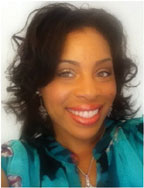

Redefining the word ‘thick’ and not allowing it to be an excuse for obesity
By Shani K. Collins
How do Black women make the distinction between being ‘thick’ and being overweight? In the South, and perhaps other areas of the country, the word ‘thick’ is commonly used to describe African-American women who were curvaceous and shapely. It is a term that suggests a woman is physically good-looking, well-proportioned and healthy—not skinny. In the Black community, we celebrate our thick lips and hips, curly-kinky hair, diverse skin tones, full faces and robust body types. Indeed, we should celebrate all aspects of ourselves because we are beautiful people. Although we proudly celebrate our heritage, our ethnic identities, and embrace our culture and roots, we must remain conscious of our responsibility to tell ourselves the truth–especially as it relates to our health.
Being shapely and curvaceous may be a good thing in the Black community, but when Black women conceal weight issues under the guise of ‘thickness’, they deny the truth about themselves. While loving all aspects of oneself is important, it is more important for Black women to love themselves the right way–by being physically healthy.
Health statistics indicate that African-Americans have the highest rates of obesity in the United States (CDC, 2013). In general, African-Americans are disproportionately affected by obesity-related illnesses such as heart disease, stroke, Type 2 diabetes and hypertension.
Specifically, Black women are most likely to die from heart disease, cancer, stroke and diabetes (CDC, 2013). In lieu of the health trends that indicate Black women are most likely to die from obesity-related illnesses, isn’t it time for the Black community to redefine ‘thickness’ and reevaluate some of its traditional notions about health?
Many Black women are physically shapely in certain areas; therefore, our definition of what is unhealthy or obese may differ from other ethnic groups’ definition. Because we live in society that often devaluates and denigrates Black women’s bodies, the Black community has formed protective boundaries around its women. Often times, instead of saying a Black woman is overweight and dealing with the causes and implications of being physically unhealthy, our community uses protective terms of endearment such as ‘pleasantly plump’, ‘thick’, ‘full-figured’, and even ‘fine’ to qualify a weight. Those protective boundaries are important and have helped to support black women’s self-esteem and allowed them to celebrate their unique God-given bodies. On the other hand, those same protective boundaries have led to the casual dismissal of beautiful, Black female bodies that are overweight, unhealthy and negatively affected by preventable diseases. In other words, in the Black community, we do acknowledge that an obesity problem may exist, but to cope with it, we consciously call it another name and/or dismiss the issue entirely. This does not serve our community well.
Unfortunately, Black women may sometimes shy away from discussions about health and weight management. We conveniently sweep such taboo topics under the rug and busy ourselves with work, family, church, and community obligations. Often, it is not until a black woman has a “wake-up call” or a near death health-related experience that she recognizes the need to make a lifestyle change. Sadly, the negative cycle of dismissing weight issues and calling them another name perpetuates through generations. The perpetuation of negative behavior and thinking about health is seen among young Black girls who are struggling with food addiction, who have weight management issues, and who have self-esteem challenges. Realistically, if a Black mother has not dealt with her own weight issues, or if she chooses to ignore her own health concerns, how will she teach her daughter to be healthy?
The issue I raise is not about the terms ‘thick,’ ‘full-figured’, ‘pleasantly-plump’, ‘fine’, or any other term of endearment that is used to qualify weight in the black community. Instead, the real issue is about addressing a taboo topic: Black women who struggle with weight management issues. The real issue is about Black women learning to embrace the truth about themselves —even when it is hard to face. Black women are so valuable to this earth and to the black community. We cannot afford to continue to lose our most precious jewels to preventable illnesses such as high blood pressure, diabetes, cancer and heart disease.
As a black woman born and raised in the Mississippi Delta, I have had candid conversations with myself about my own weight challenges. As a busy doctoral student, I noticed that I was living an unhealthy lifestyle and gaining weight as a result of a poor diet and lack of exercise. I decided to make a change and become more conscious about my health. Today, I am healthier and remain committed to living a lifestyle that will allow me to live free of diabetes, heart disease, stroke and high blood pressure. I want the same for my grandmother, mother, aunts, sister, cousins and niece. I want the same for all black women across the world.
In essence, redefining thickness does not mean black women should reject their culture or ethnic identities, deny the beauty of their robust bodies, or avoid using terms of endearment that have been used within our community for centuries. However, redefining thickness does mean that we hold ourselves accountable to being physically healthy. We can do so by consciously visiting the doctor, having recommended health screenings, and evaluating our weight, blood pressure, cholesterol level and food choices to ensure that we are truly physically healthy and not living in denial. We must do so for ourselves and we must do so for the generation of young black girls who look up to us, who love us, and who seek our guidance, wisdom and direction for their own lives.
Shani K. Collins is a freelance writer, a college instructor, a health advocate, and a social work doctoral degree candidate at the University of Alabama. You may visit her at www.shanicollins.com.


Be the first to comment